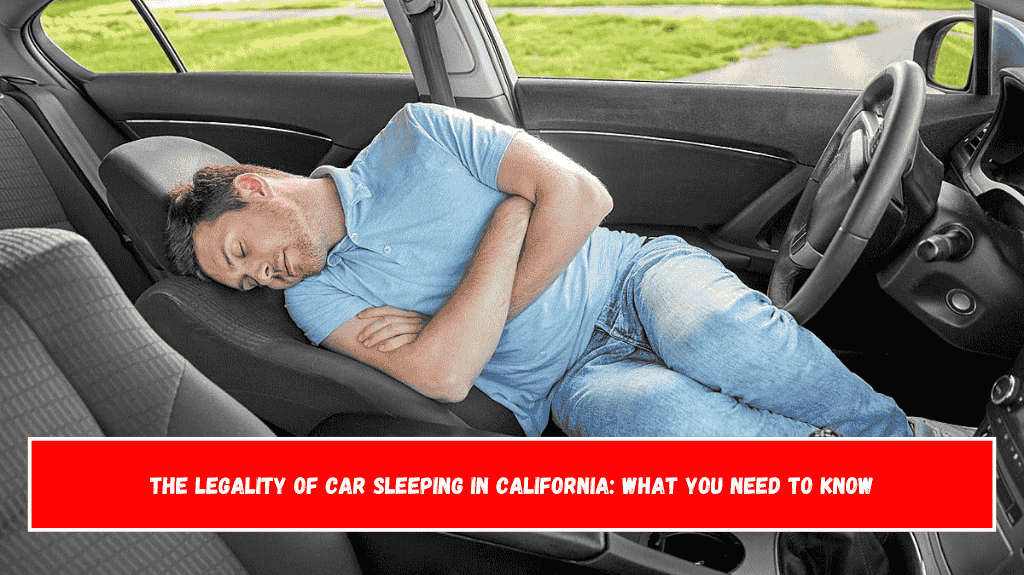In California, the legality of sleeping in your car depends on state laws, local ordinances, and the specific location where you park. While it is not outright illegal to sleep in a vehicle, there are significant restrictions and variations across cities and counties. Here’s what you need to know about sleeping in your car in California in 2025:
Statewide Rules
- General Legality: California law allows individuals to sleep in their cars if the vehicle is legally parked. However, this is typically limited to short durations and does not permit long-term habitation.
- Rest Stops: At state rest areas, sleeping in your car is legal for up to 8 hours, making them a safe option for travelers needing a break.
City and County Ordinances
Local governments in California have enacted stricter rules targeting overnight vehicle habitation. These ordinances aim to address homelessness and maintain public spaces but can create challenges for those relying on their vehicles as temporary shelter.
- Los Angeles: Municipal Code 85.02 prohibits sleeping in vehicles between 9 PM and 6 AM in residential areas or near parks, schools, or daycare facilities. Violations result in fines starting at $25.
- San Francisco: Most neighborhoods enforce strict no-camping ordinances, making it illegal to sleep in vehicles overnight on public streets.
- San Diego: Sleeping in cars is banned during the same hours as Los Angeles and at all times near schools or residential properties.
- Carlsbad: In 2025, Carlsbad expanded its illegal camping ordinance to include sleeping in vehicles. Police are required to offer services and shelter before issuing citations.
Private Property and Parking Lots
- Private Property: Sleeping in your car on private property is generally allowed with the owner’s permission.
- Retail Parking Lots: Some businesses, like Walmart, may permit overnight parking at specific locations, but this varies by store. Always check with management or look for posted signs.
Consequences of Violating Laws
Failing to comply with local ordinances can lead to:
- Fines: Penalties range from $25 to $500 depending on the city and frequency of violations.
- Towing and Impoundment: Repeated violations may result in your vehicle being impounded, incurring additional fees.
- Criminal Charges: In extreme cases, habitual violations can escalate to misdemeanor charges.
Distinction Between Sleeping and Living in a Car
California law differentiates between temporarily sleeping in a car (e.g., during travel) and using it as a primary residence. Long-term vehicle habitation is more likely to violate local anti-camping ordinances.
Safe Alternatives
For those needing a safe place to sleep:
- Use designated rest areas for short stays.
- Seek out “Safe Parking” programs offered by some cities or organizations that provide secure overnight parking for individuals living in vehicles.
- Check local ordinances before parking overnight.
While California permits sleeping in cars under certain conditions, strict local regulations often restrict where and when this can occur. Travelers should familiarize themselves with city-specific rules to avoid fines or legal issues. For those facing housing challenges, seeking out safe parking programs or community resources may provide better alternatives.
Sources
- https://reolink.com/blog/is-it-illegal-to-sleep-in-your-car/
- https://www.linkedin.com/pulse/legal-sleep-your-car-law-office-of-james-arrasmith
- https://statelawfirm.com/post/is-it-illegal-to-sleep-in-your-car-california-laws/
- https://legiscan.com/CA/text/SB692/2025
- https://www.codepublishing.com/CA/CarmelbytheSea/html/Carmel10/Carmel1072.html

















Leave a Reply